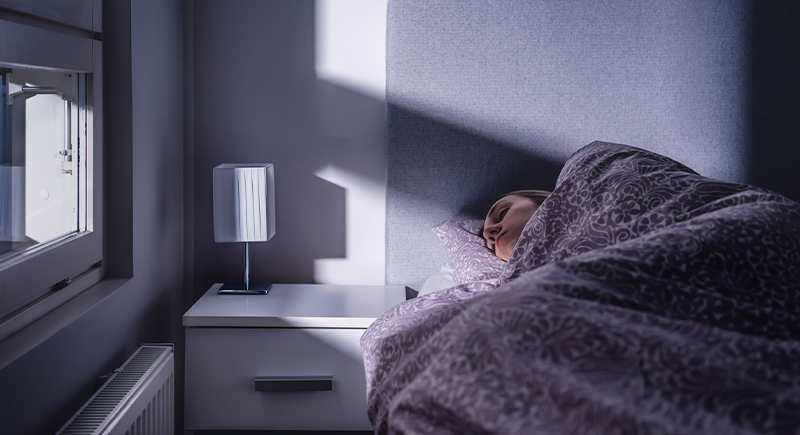Your Bedroom Setup Could Be Causing 3 A.M. Wake-Ups
Studies show that more than a third of adults wake up at least once during the night, often around the same early-morning hours. While stress and body rhythms explain some of it, researchers have found that small details in the sleep environment can play an unexpected role, too. Here’s how.
Exposure to Light

Image via iStockphoto/Tero Vesalainen
One of the most overlooked reasons for interrupted sleep is light exposure. Light enters through the eyes and signals the brain’s suprachiasmatic nucleus, which manages the body’s internal clock. This reaction suppresses melatonin, the hormone that supports sleep. For this reason, streetlights, standby electronics, or even a nightlight can force your eyes wide open.
This can easily be solved by darkening your room. Start with blackout curtains to block outside light, especially if streetlights or passing cars shine through your windows. Then look around for small sources of light, like glowing chargers or digital clocks, and unplug or cover them. If your phone lights up during the night, consider using a basic alarm clock without a backlight.
Bedroom Temperature
You might not realize it, but your body’s core temperature naturally drops in the first part of the night and then starts to rise again between 2 and 4 a.m. If your bedroom is too warm during that shift, it is more likely to interrupt your slumber at that time. Anything above 72°F can push your body out of the ideal temperature range for rest.
Various researchers suggest keeping the room between 60°F and 67°F. Before bed, try lowering the thermostat, switching to lighter, breathable bedding, or using a fan to keep the air moving. A cooler, well-ventilated space allows you to doze off longer and more deeply.
Your Personal Habits

Image via iStockphoto/LENblR
How well you sleep at night also often traces back to what you did earlier in the day. Skipping meals or eating dinner too late can lead to dips in your blood sugar in the middle of the night. When that happens, your body releases cortisol to bring your levels back up, which can jolt you awake. On top of that, screen time in the evening can delay melatonin and throw off your internal clock.
A small, balanced snack before bed—something like oatmeal or a banana with nut butter—can keep your blood sugar steady through the night. It also helps to step away from screens at least 30 minutes before bed to let melatonin do its job.
Body Conditioning

Image via iStockphoto/amenic181
Our brains pick up on patterns quickly, even when we’re not fully aware of them. If you’ve woken up at 3 a.m. a few nights in a row, your mind may start treating that time as a cue. This is how conditioning works. A temporary disruption, like stress, illness, or a change in routine, can turn into a repeated pattern.
To break the habit, consistency is key. Keep a steady bedtime and wake-up time, even on weekends. If you find yourself wide awake, don’t stay in bed trying to force sleep. Get up, do something calming in dim light, then return to bed once you feel drowsy. That reset helps your mind and body rebuild the connection between bed and sleep.